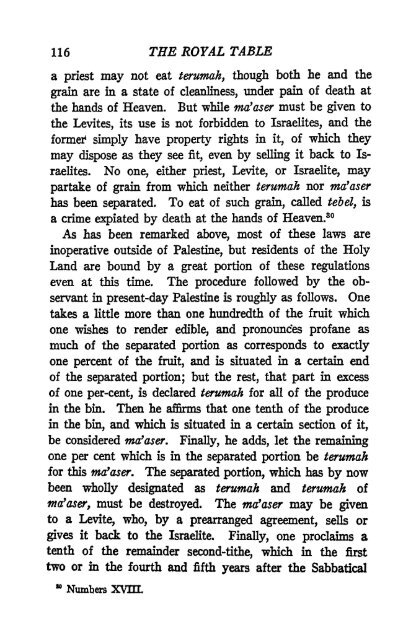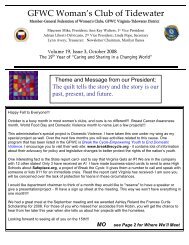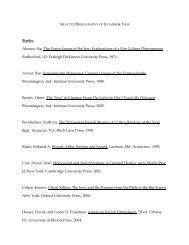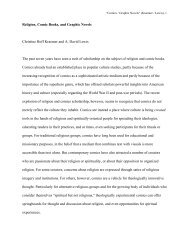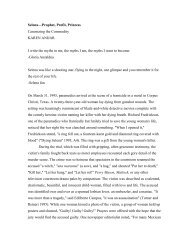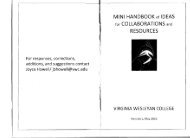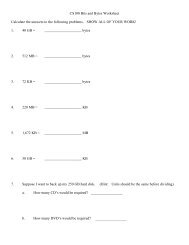Cohn, Jacob. The Royal Table - VWC: Faculty/Staff Web
Cohn, Jacob. The Royal Table - VWC: Faculty/Staff Web
Cohn, Jacob. The Royal Table - VWC: Faculty/Staff Web
You also want an ePaper? Increase the reach of your titles
YUMPU automatically turns print PDFs into web optimized ePapers that Google loves.
116 THE ROYAL TABLE<br />
a priest may not eat terumah, though both he and the<br />
grain are in a state of cleanliness, under pain of death at<br />
the hands of Heaven. But while ma'aser must be given to<br />
the Levites, its use is not forbidden to Israelites, and the<br />
former* simply have property rights in it, of which they<br />
may dispose as they see fit, even by selling it back to Israelites.<br />
No one, either priest, Levite, or Israelite, may<br />
partake of grain from which neither terumah nor ma'aser<br />
has been separated. To eat of such grain, called tebel, is<br />
a crime expiated by death at the hands of Heaven. 30<br />
As has been remarked above, most of these laws are<br />
inoperative outside of Palestine, but residents of the Holy<br />
Land are bound by a great portion of these regulations<br />
even at this time. <strong>The</strong> procedure followed by the observant<br />
in present-day Palestine is roughly as follows. One<br />
takes a little more than one hundredth of the fruit which<br />
one wishes to render edible, and pronounces profane as<br />
much of the separated portion as corresponds to exactly<br />
one percent of the fruit, and is situated in a certain end<br />
of the separated portion; but the rest, that part in excess<br />
of one per-cent, is declared terumah for all of the produce<br />
in the bin. <strong>The</strong>n he affirms that one tenth of the produce<br />
in the bin, and which is situated in a certain section of it,<br />
be considered ma'aser. Finally, he adds, let the remaining<br />
one per cent which is in the separated portion be terumah<br />
for this ma'aser. <strong>The</strong> separated portion, which has by now<br />
been wholly designated as terumah and terumah of<br />
ma'aser, must be destroyed. <strong>The</strong> ma'aser may be given<br />
to a Levite, who, by a prearranged agreement, sells or<br />
gives it back to the Israelite, Finally, one proclaims a<br />
tenth of the remainder second-tithe, which in the first<br />
two or in the fourth and fifth years after the Sabbatical<br />
w Numbers XVm.


